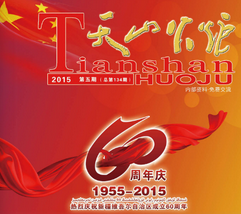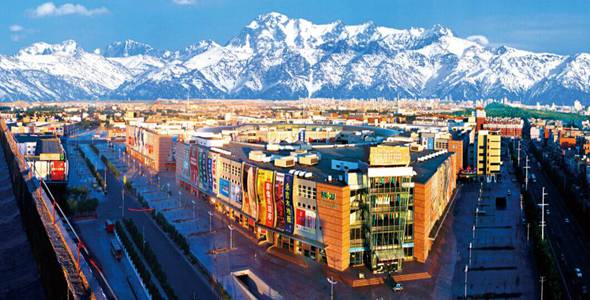Faster "New Silk Route" train leaves Urumqi
( chinadaily.com.cn )
Updated: 2016-05-27
|
|||||||||
The first "New Silk Route" Central Asia train departed from Urumqi West Station in Xinjiang Uygur autonomous region, for Almaty, Republic of Kazakhstan, on May 26, filled with appliances, costumes, general merchandise, and building materials.
The 57-container train will arrive at its destination in 39.5 hours, 20 hours sooner than former westbound international trains.
In addition, as the Urumqi Railway Bureau has teamed up with the customs and China Inspection and Quarantine offices to supply one-stop logistics, clearance and inspection services, clients are now able to handle distribution, loading and declaration of bulk cargo at the railway yard and are kept informed of the freight status via an e-commerce platform. The simplified process saves more than 1,000 yuan ($152.6) for each container of goods.
"We had 10 containers of general merchandise on the train. It reduced travel time and more than 10,000 yuan of cost for us," said Lan Shujuan, general manger of Urumqi Tongyada International Logistics Co.
According to Wang Zhongcai, international cooperation chief of the bureau, the station dispatches one "New Silk Route" train (Urumqi to foreign countries) per week, and the shifts will increase, as requirements go up, to three per week in July.
As China's "Belt and Road" strategy proceeds, Xinjiang's advantageous location as a core in the Silk Road Economic Belt is increasingly highlighted.
Since the first westbound international train was launched on March 8, 2014 by the Urumqi Railway Bureau, Xinjiang has opened 135 different train routes to foreign destinations including major cities in Kazakhstan, Tajikistan, Turkmenistan, Kyrgyzstan and Uzbekistan, as well as Georgia, Turkey, Russia, Iran, and Poland.
In addition, Xinjiang has sent off "New Silk Route" national trains (Chinese cities to Urumqi) to attract domestic cargo for export.
Edited by Peter Nordlinger





